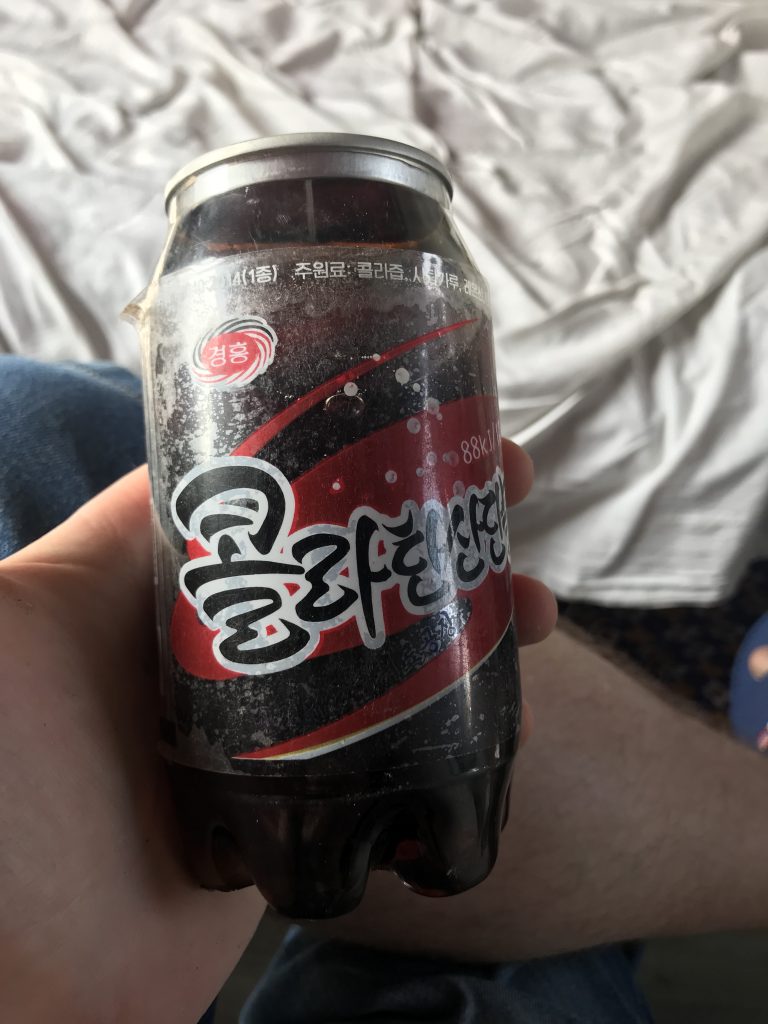Introduction
The Soviets loved Pepsi, so much so that they were prepared to give up a lot of military goods for syrupy stuff. Here’s how Pepsi traded cola for warships.

There’s an old Soviet story that goes a little something like this. When Pepsi made their first bottling plant in Crimea, the head of Pepsi asked the Soviet Minister in charge of the affair what the most popular drink in the USSR was, the Minister honestly replied “Vodka.” The Pepsi executive with a wry smile then said, “let us see what the most popular drink is in a year’s time.” A year duly went by, and the executive again asked the Minister what the most popular drink in the USSR was, to which he replied, “vodka and Pepsi.” True, or not, we love the story.
When Pepsi Traded Cola for Warships – Proletariat Cola
In late 1950, Eisenhower wanted to showcase Americanism to the Soviets, and what followed was America being able to showcase Capitalism in Russia, with the Soviets being able to do the same in America. These “shows” deserve an article in themselves, but in the interests of this story, they started an argument between Great Man of the People Richard Nixon and Nikita Khrushchev.
Both politicians were arguing about the virtues of capitalism and socialism when the head of Pepsi allegedly offered the Russian Premier a cup of Pepsi. He duly accepted, and thus a love affair between the Soviets and Pepsi began.
Pepsi Comes to the USSR
After that event, the Soviets were desperate to bring Pepsi to the country. The only problem was that they were not prepared to waste valuable foreign currency on the stuff and that Roubles were worthless on the international stage.
They duly did what any smart superpower would do and decided to exchange something they had for what they wanted. The Soviets were allowed the syrup to make and distribute Pepsi in the Soviet Union, whilst Pepsi was given full distribution rights to the best vodka in the world, Stolichnya.
That’s right the Soviets paid for Pepsi with Stoli vodka.
Pepsi Dominates the Soviet Scene
As the first western brand in the USSR, Pepsi became a hit for both cool youth and old alcoholics – the vodka Pepsi thing was more than just a joke. It seemed that Pepsi had made one of the smartest business decisions in history, for even if communism were to fall, they’d still be market leader, right? Well fun fact, that is not what happened.
Pepsi No Longer Accept Payments in Vodka and Demand a Navy
OK, that title is a bit clickbaity, but at the end of the 1980s not only was communism coming to an end but so was the contract to supply Pepsi to the USSR. No longer happy to accept payment in vodka the Soviets came up with another plan. Would it be OK to pay with warships?
Pepsi thought this sounded like a great idea and they traded Pepsi for a fleet of subs and boats for the product. The new agreement included 17 submarines, a cruiser, a frigate, and a destroyer.
The deal was worth a whopping 3 billion dollars of Pepsi. If you ever doubt how much Russians liked Pepsi at the time, read those numbers.
Corporations controlling massive militaries might seem like something from a dystopian future, or even 1950’s United Fruit Central America, but this was the real deal. With the fleet that Pepsi now owned, this made them the 6th largest naval power on the planet. Let that sink in for a minute.
The world waited with bated breath for what Pepsi would do with its new military prowess. Would the “cold cola wars” now become a hot war? Would Coca-Cola finally be banished through military might? Sadly not and the wimps at Pepsi simply scrapped the ships for cash.
Pepsi Not So Popular in the Post-Soviet World
In 1991 McDonalds entered the Moscow scene in partnership with coke, and as judged by the massive lines, non-Soviet shit was about to become very popular. The Soviet Union then fell, Russian markets were opened up, and Pepsi duly fell out of favour.

Whilst there was a particular amount of nostalgia for Pepsi, it was also associated with the “bad old days,” as well as drunk Uncle Sergei with his “Pepsi” bottle.
Coca-Cola won the Cola Wars in Russia with Pepsi now the third most popular soft-drink in the country after Coke and Beer. Yes beer is considered a soft-drink.
One can only imagine that following their defeat, the executives at Pepsi were sitting down and reminiscing about when they had the 6th biggest navy in the world, and perhaps regretting not having used it against Coca-Cola.





